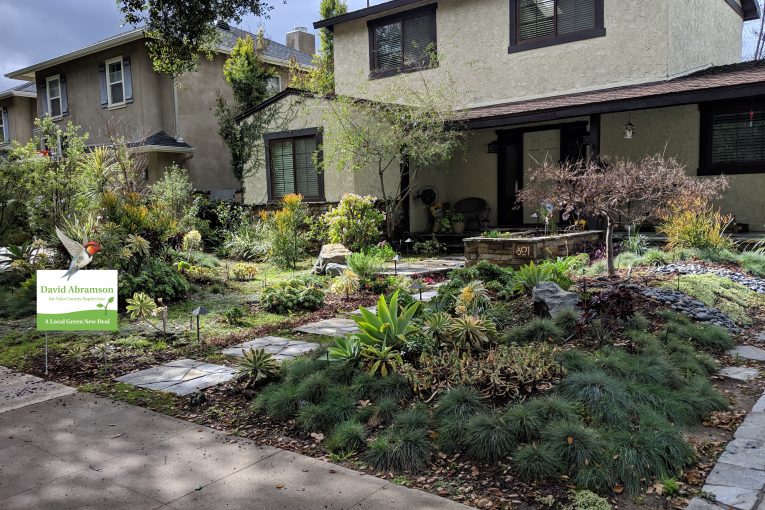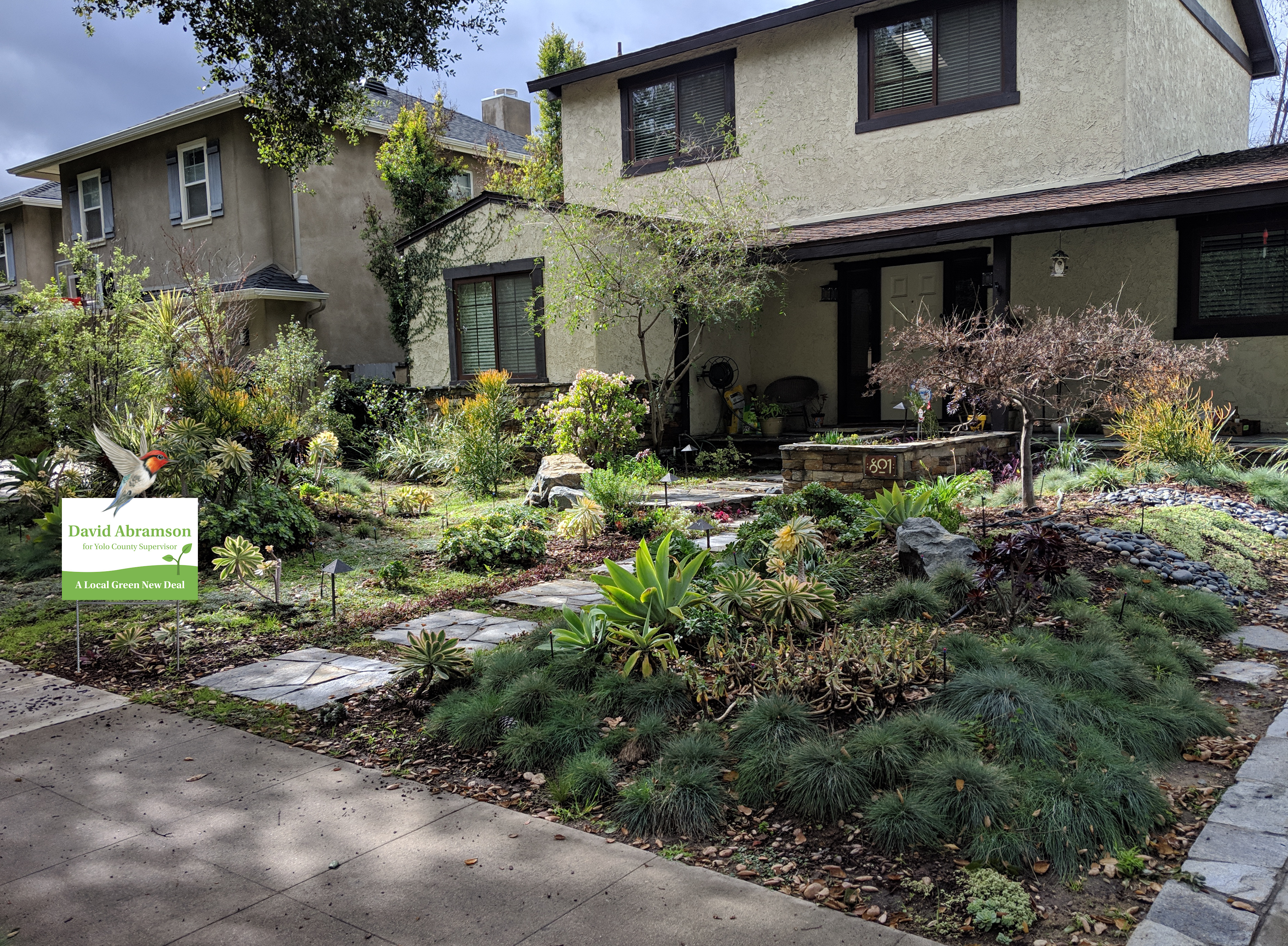
 By David Abramson
By David Abramson
This is our beautiful lawn sign. You won’t see any of them out in town though. Here’s why:
Lawn signs are typically made from corrugated plastic AKA polypropylene (PP), which is created in an industrial process using propylene, a gas formed in the refinement of gasoline.
Once created, the lawn signs last an election cycle and then hopefully get picked up by campaign teams or recycled by homeowners. I know that local election teams here do a good job retrieving signs, but according to data from the American Chemistry Council, less than 1% of PP products get properly recycled nationwide. The rest end up in local landfill where as they degrade, they can pose serious environmental concerns and costs to communities.
But let’s say that we do an amazing job and recover 100% of our local lawn signs from the election, and they get properly recycled. What happens then?
We used to send the majority of our recycling to China to be processed. In 2016 we were sending them 1,400,000,000 lbs per year! But in 2017, China stopped accepting our recycling, largely due to the environmental impacts of processing our recycling. This is not well-publicized but many cities simply stopped recycling, as the markets for recycling dried up. Martin Bourque of Ecology Center in Berkeley, CA says:
“A lot of it is being stockpiled…You know, people who have warehouse space.” Many communities — like Eugene, Ore. — temporarily stopped collecting things like yogurt containers and shampoo  bottles that used to go to China.”
bottles that used to go to China.”
I spoke with a representative at Recology Davis yesterday to ask about the recycling situation in Davis, and it was good to hear that they have indeed found markets for our recycled products amidst the recycling crisis.
However these markets are mostly in Southeast Asia, a place where more of our recycling products have gone since China’s departure, and a place that is likely to face similar environmental impacts as a result.
A Greenpeace report in 2018 warned of regulation violations in the disposal of imported plastic waste to Malaysia, including plastic burned on roadsides in open-air, dumped in unregulated and poorly-regulated dump sites near bodies of water, or just left to degrade and rot in the open, contributing to environmental pollution and harmful health impact for Malaysians.
For me there ended up being no way to reconcile a platform and vision of a Local Green New Deal with creating the amount of waste and resource needs associated with printing lawn signs. We are putting it all to the test in this campaign here and we seek to walk what we are talking right here and right now. No waiting until after election season.
Lawn signs provide great visibility for candidates, and I was certainly tempted to print them after being unsuccessful in negotiating a “lawn-sign truce” with the other candidates in the race.
Will the lack of visibility cost us in the election? Who knows. Our message is resonating far and wide through knocking on doors, talking to people, and through our online channels.
If you are one of the people who thinks we did the right thing by foregoing lawn signs, we encourage you to share this post.
You can help us by working a 2 hour canvassing shift, phone banking, donating, telling your friends and family about our campaign and seeing what’s under the surface of our vision for a Local Green New Deal on our website.
And most importantly, you can join the community collaboration for a Local Green New Deal that is already underway!! We all need each other, we need everyone’s unique gifts, talents, and energy and this thing only moves with the spirit and effort of our community here in Yolo County.

David speaks the truth about recycling. This needs to be exposed on so many levels. The critical thinking lacking in so many progressive voters is astonishing and dangerous. Special interests have learned that you put an initiative on the ballot and put in the words “green” and “sustainable” in the title and it wins, hands down, in progressive states. LOOK – at who benefits from a proposition passing. LOOK – at the full stream on an green measure, and watch especially for side-effects and unintended consequences – even from something as seemingly simple as recycling.
Go deeper.
I very much appreciate David Abramson’s “walking the talk”. Me? I’ll pay cost for a “David Abramson” lawn sign not made from corrugated plastic AKA polypropylene (PP). Are enviro-friendly versions available?
There was an excellent piece done by 60-minutes Australia on their recycling crisis. My understanding is the same issue is prevalent in many our the US recycling programs as well.
Exposing Australia’s Recycling Lie (18 mins)
https://www.youtube.com/watch?v=lqrlEsPoyJk